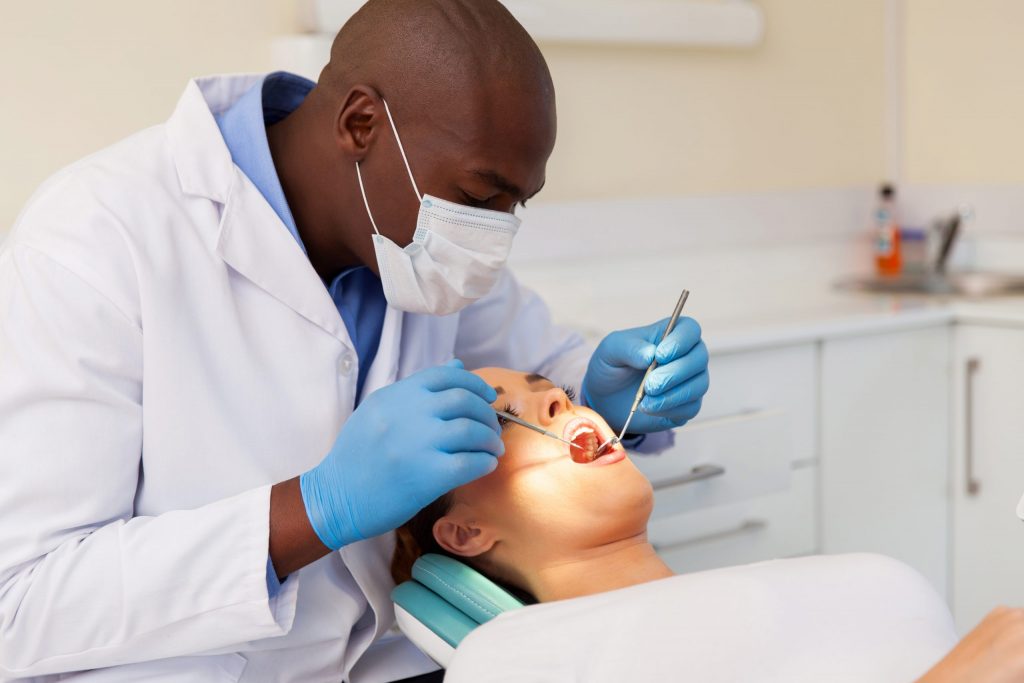Meet Your Pleasant Area Dentist Eugene OR and Their Providers
Meet Your Pleasant Area Dentist Eugene OR and Their Providers
Blog Article
A Guide to Usual Oral Problems That Need a Dental practitioner's Treatment
Comprehending the series of dental problems that require expert care is critical for keeping optimum oral health. Toothaches, for instance, can be symptomatic of serious issues such as cavities, cracked teeth, or abscesses, each calling for details treatments like fillings or root canals. Gum condition, from the early phases of gingivitis to a lot more extreme periodontitis, underscores the value of routine dental examinations and cleanings. Additionally, influenced wisdom teeth and jaw disorders can introduce substantial pain and complications. Making certain prompt brows through to the dental practitioner can mitigate these problems effectively, but what precisely are the treatments and indicators entailed?
Toothaches
Toothaches are a typical oral condition that can range from mild discomfort to serious discomfort, typically suggesting a hidden problem that calls for specialist attention. This pain can come from a selection of sources, including tooth decays, broken or fractured teeth, and oral abscesses. Each of these conditions positions significant risks if left untreated, potentially bring about extra severe problems.
Dental dental caries, also recognized as decays, are caused by the build-up of plaque that wears down tooth enamel, leading to openings or pits in the affected teeth. Abscesses are painful infections at the root of a tooth or in between the periodontal and a tooth, generally resulting from serious decay or without treatment cavities.
Reliable therapy of toothaches involves dealing with the source. This may consist of dental fillings for tooth cavities, crowns for fractured teeth, or origin canals and prescription antibiotics for abscesses. Early treatment by a dental specialist can stop further degeneration and alleviate pain, guaranteeing optimal oral wellness.
Gum Tissue Condition

The main reason of gum disease is microbial plaque, a sticky, anemic movie that regularly bases on teeth. Poor oral hygiene, smoking, genetic tendency, and specific clinical problems, such as diabetic issues, can worsen the threat of establishing gum condition. Regular oral examinations are important for very early detection and administration of this problem.
Therapy for gum tissue disease ranges from professional oral cleaning and scaling to advanced procedures like origin planing and periodontal surgical procedure, depending upon the severity. Keeping great dental hygiene methods, consisting of cleaning two times daily, flossing, and making use of an antibacterial mouthwash, can substantially decrease the risk of gum tissue condition and promote healthier gum tissues.
Dental Caries
Cavities, also recognized as cavities, are a common oral condition characterized by the damage of tooth enamel due to acid-producing bacteria in the mouth. These microorganisms thrive on sugars and starches from food and beverages, generating acids that gradually erode the enamel, resulting in cavity formation.
Early-stage cavities might disappoint symptoms, but as they proceed, they can create tooth pain, level of sensitivity to hot or chilly, noticeable holes or pits in the teeth, and staining. If left untreated, tooth cavities can penetrate deeper layers of the tooth, possibly leading to extreme discomfort, infection, and even missing teeth.
Protecting against dental caries entails a mix of good oral health methods and nutritional habits. Normal cleaning with fluoride toothpaste, flossing, and regular dental examinations are vital. Dental professionals may likewise recommend extra preventative procedures, such as fluoride therapies and dental sealers, to shield teeth from decay.
Minor tooth cavities can be attended to with dental fillings, which bring back the tooth's structure. More innovative cases may require crowns or even root canal therapy if the degeneration has gotten to the tooth's pulp.
Impacted Knowledge Teeth
Affected knowledge teeth are a common oral concern that occurs when the third molars, frequently described as knowledge teeth, fail to completely arise or straighten properly within the mouth. This condition commonly results from insufficient space in the jaw or an abnormal growth angle of the teeth. Influenced knowledge teeth can lead to a selection of issues, consisting of pain, infection, and damages to adjacent teeth.
When wisdom teeth end up being influenced, they are often partially erupted or remain completely beneath the gum line. This partial eruption can develop a path for germs to enter the periodontals, bring about infections that materialize as swelling, discomfort, and even fever (dentists eugene). Additionally, influenced wisdom teeth can exert stress on bordering teeth, possibly causing crowding or changing
A detailed dental evaluation, commonly entailing X-rays, is essential for identifying affected wisdom teeth. Treatment typically involves medical extraction, done by a dental surgeon. The procedure aims to relieve discomfort and stop additional problems, such as cysts or damage to surrounding bone structures. Post-operative treatment is crucial to guarantee proper healing and decrease the danger of infection. Routine dental examinations are recommended to keep an eye on the condition and keep dental health.
Jaw Problems
Final Thought

Oral tooth cavities, also known as cavities, are caused by the build-up of plaque that deteriorates tooth enamel, leading to openings or pits in the impacted teeth. Abscesses are agonizing infections at the origin of a tooth or in between the gum tissue and a tooth, generally resulting from serious degeneration or without treatment dental caries.
Affected wisdom teeth are a widespread dental issue that happens when the 3rd molars, generally referred to as knowledge teeth, stop working to totally emerge or straighten properly within the mouth. Influenced wisdom teeth can lead to a variety of issues, including damage, infection, and pain to nearby teeth.
Additionally, impacted knowledge teeth can apply pressure on surrounding teeth, possibly causing crowding or changing.
Report this page